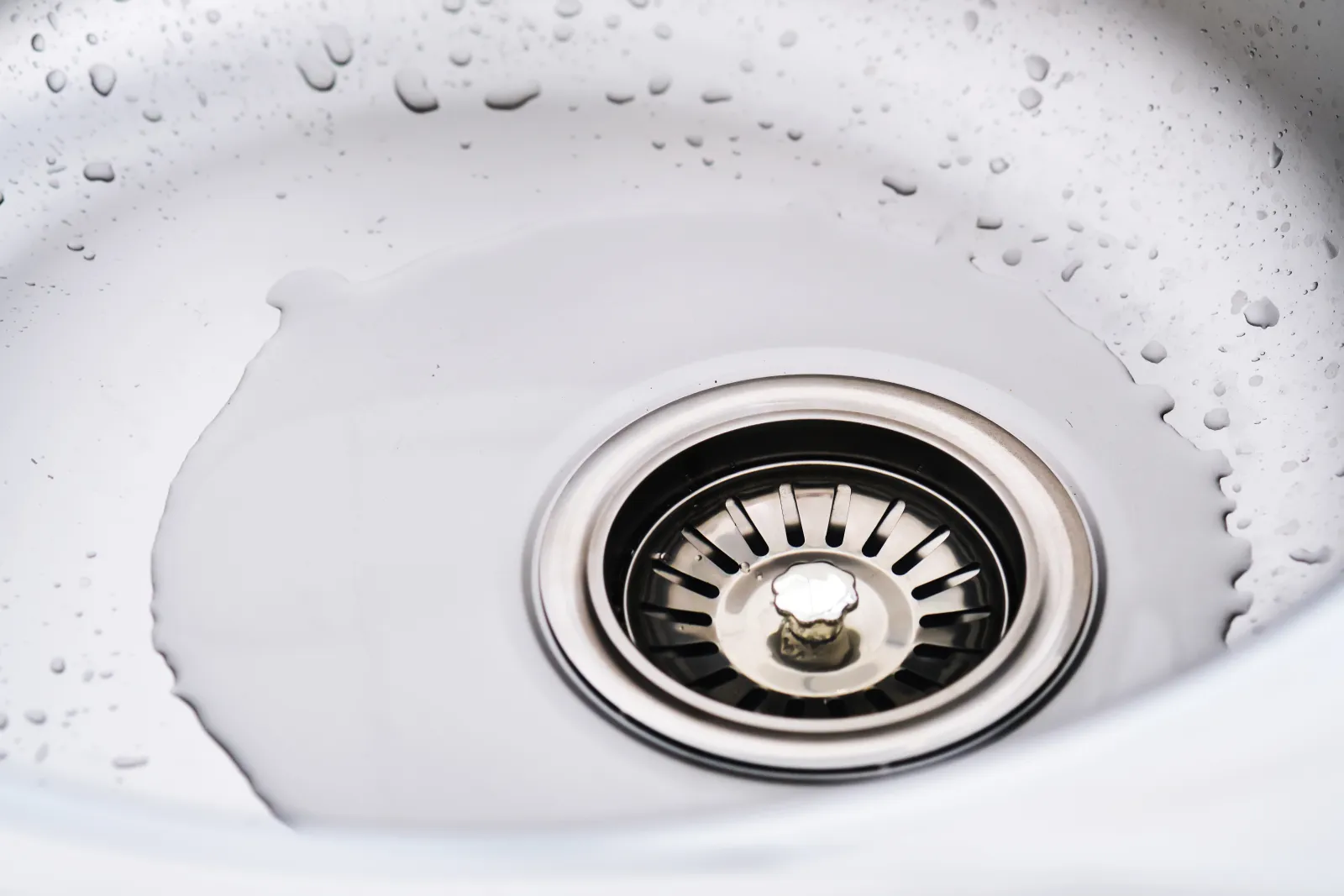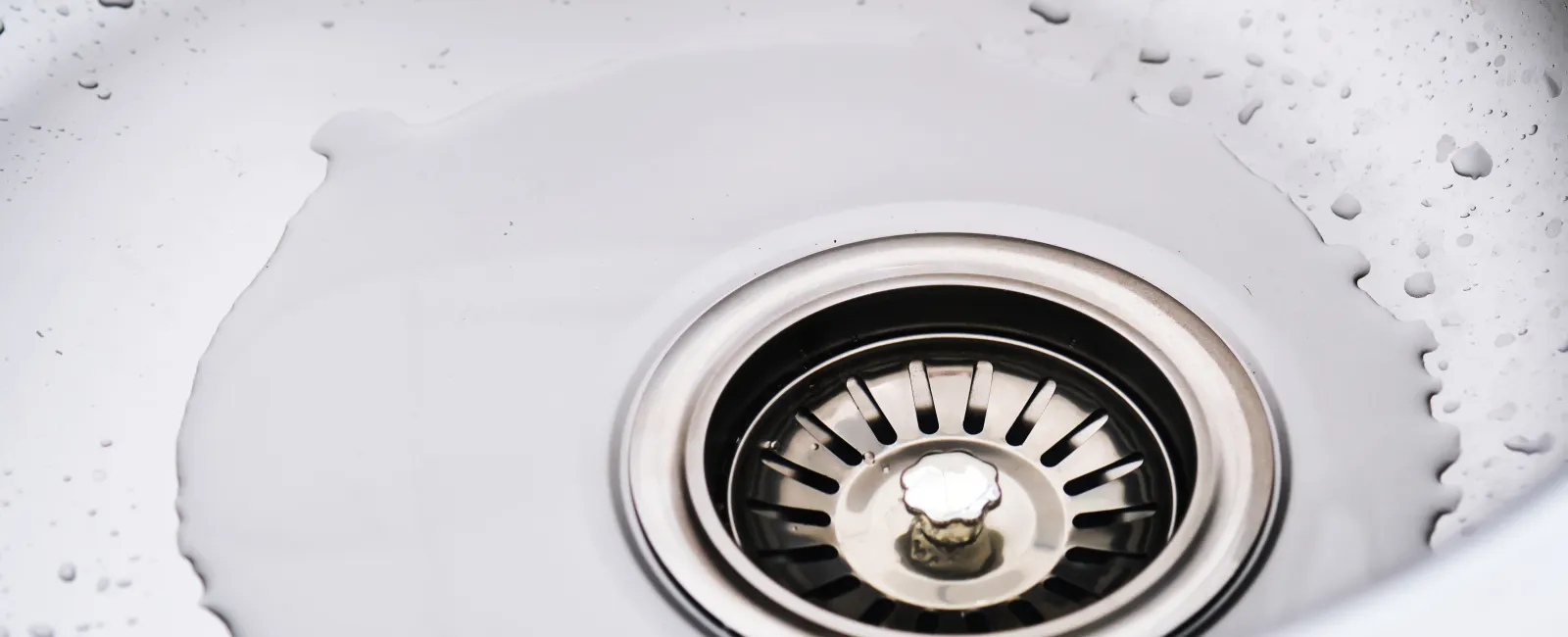A hidden problem underground can quickly become a costly and unsanitary nightmare in your home. Your septic system works tirelessly behind the scenes, but when it starts to fail, it gives off clear warnings. Recognizing the early signs of septic failure is crucial for protecting your property, your health, and your wallet from the high cost of a complete system replacement. This guide will walk you through the most common septic system failure signs so you can take action before it's too late.

Top 10 Signs Your Septic System Is Failing
If you notice one or more of the following issues, it's time to call a professional. These are the most critical indicators that your septic system is in trouble.
Foul Odors: One of the most unmistakable signs septic system is failing is the smell of sewage or "rotten eggs" around your septic tank, drain field, or even inside your home. This indicates that wastewater is not being processed correctly and harmful gases are escaping.
Soggy Ground or Standing Water: If you notice mushy ground, persistent puddles, or standing water above your drain field, it's a major red flag. This means the drain field is saturated and can no longer absorb treated effluent, forcing contaminated water to the surface.
Sewage Backup: This is an emergency. If raw sewage is backing up into your toilets, showers, or sinks, your system has a severe blockage or is completely overwhelmed. This poses an immediate health hazard and requires urgent professional attention.
Slow Draining Fixtures: Are all the drains in your house - sinks, showers, and toilets - draining much slower than usual? While a single slow drain might be a simple clog, widespread slowness points to a system-wide problem, like a full tank or a failing drain field.
Unusually Green or Lush Grass: A patch of grass over your drain field that is suddenly much greener and more lush than the rest of your lawn is a classic sign of trouble. While it might look nice, it's being over-fertilized by untreated wastewater leaking from the system.
Gurgling Plumbing: Do you hear gurgling sounds from your pipes and drains when you flush a toilet or run water? This sound is often caused by trapped air in the plumbing, which is a symptom of a blockage or backup in your septic system.
Well Water Contamination: If you have a private well, have your water tested regularly. The presence of high levels of nitrates or coliform bacteria is an alarming sign that wastewater from your failing septic system is contaminating your drinking water supply.
Septic Tank Alarm Going Off: Many modern systems are equipped with an alarm to signal high water levels in the tank. If this alarm goes off, it's a direct warning of a pump failure or a major issue preventing the system from draining properly.
Need for Frequent Pumping: A healthy septic system typically needs pumping every 3-5 years. If you find yourself needing to pump it annually or more often, it indicates a deeper problem. The system is not breaking down solids effectively, or the drain field is no longer accepting water.
Running Toilets and Leaky Faucets: While not a direct sign of failure, constant running water from a leaky toilet or faucet can hydraulically overload your septic system. This constant flow of water overwhelms the drain field, leading to premature failure.
Common Causes of Septic System Failure
Understanding why systems fail can help prevent future issues:
Lack of Maintenance: The number one cause. Failure to pump solids out of the tank regularly allows them to flow into and permanently clog the drain field.
Hydraulic Overload: Using too much water from leaky faucets, excessive laundry, or malfunctioning water softeners can overwhelm the system.
Physical Damage: Heavy vehicles driving over the drain field or tree roots invading pipes can cause significant damage.
Age: Even well-maintained systems have a finite lifespan, typically 20-30 years, before components begin to degrade.
What to Do Immediately If You Suspect a Problem
If you recognize any of these septic system failure signs, take these steps right away:
Reduce Water Usage: Immediately limit water use to reduce the load on the system. Stop doing laundry, take shorter showers, and minimize flushing.
Protect the Area: Rope off any soggy or wet areas over your drain field to keep people and pets away from potentially hazardous wastewater.
Do Not Use Additives: Avoid flushing chemicals or additives down the drain that claim to fix septic problems. They are often ineffective and can sometimes make the problem worse.
Call a Professional: The most important step. Contact a certified septic service provider immediately.
Don't Wait for a Septic Emergency | Contact Us Today!
Recognizing the signs of septic failure early is the key to avoiding a catastrophic and expensive mess. If your septic system is showing these warning signs, don't delay. Contact Scorpion Septic for expert diagnosis, septic field repair, and maintenance services. Our experienced team is ready to restore your system's efficiency and protect your property.
Frequently Asked Questions
How much does it cost to fix a failing septic system?
The cost varies widely. Minor repairs like fixing a broken pipe or replacing a pump can cost a few hundred to a couple of thousand dollars. However, a completely failed drain field, which is a common outcome, can require a full replacement costing $10,000 to $20,000 or more.
Can a failing septic system be repaired?
Often, yes. Depending on the cause, components like the distribution box, septic pump, or damaged pipes can be repaired. However, if the drain field is clogged beyond recovery (biomat failure), it typically needs to be replaced.
How often should I get my septic system inspected?
It's recommended to have your septic system professionally inspected at least every 3 years. This helps catch potential problems before they become severe failures and ensures your system is functioning correctly.

